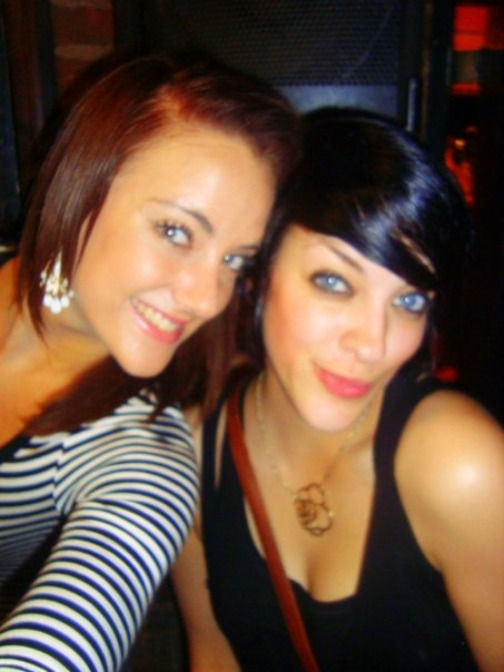— Sophie Card contributed with this report
Twins have always been an interesting talking point. For identical twins, trying to tell them apart generally leads to frustration and confusion, even if you’ve been around them for years.
The intrigue following identical twins is natural, but what about non-identical twins? Even though they aren’t clones of each other, do they still feel connected as one half of a twin?
Non-identical twins, also known as dizygotic twins, are the result of two eggs being fertilised in the womb. Most non-identical twins do not have the striking resemblance that you see with identical twins, and those that do find that they lose the likeness as they grow up.

For many, the idea of being one half of a twin is a scary one; constant bickering, having to share, and always coming as a pair are just some of the downsides. Rachael Starkey, one half of non-identical twins, agrees that sometimes it can be challenging.
“Sometimes always being known as ‘one of the twins’ and not just for being me gets frustrating. When we were younger it did get annoying being dressed the same, especially when you reach the age where you want to dress yourself,” she says.
For years scientists have tried to find a link between twins and the special connections that they share. Many sets of twins report feeling pain at the same time, and being able to sense when the other twin is in danger, something that Leanne Starkey shares with Rachael:
“I can always tell within myself if something’s wrong or if my twin is upset, so I will always get in touch with her. There have been many occasions where we can tell what the other is thinking,” she says.
This type of thing is not uncommon, with many sets of twins reporting feeling the same mysterious signs of danger.
The legend of the evil twin has been around since mythological times, with many believing that one twin is made from goodness and the other choosing the path of evil. This has appeared in many films and comics, such as “Wonder Woman” and “Superman”, who had to face their arch-evil twin.
There is of course no concluding evidence to support this, but Leanne agrees that people do make the assumption as to which is the evil twin: “Rachel has always been the shy, ‘good’ twin, and I was always known as the loud, naughty one, so if we had to pick it would probably be me, but I wouldn’t go as far as saying evil!” she says.
The novelty of twins is great, dressing them up to look like dolls, like in “The Shining”, getting them to swap places for the day, such as in “The Parent Trap”, the possibilities are endless.
The pranks that twins, even non-identical sets, can pull off seems to make up for the negative aspects. “There was a time at Primary school in a play where we both had to play the same character and nobody noticed we swapped places halfway through!“ Leanne says.
Although the task of being a twin is sometimes hard, Rachael agrees that it is a special bond: “It’s like having a best friend who you live with and hang out with. Having someone to share a birthday with, and introducing Leanne as my twin sister is always cool.”

Although this article is well-written, it could’ve done with a lot more than mere speculation over whether twins have “intuition” and some sort of weird telepathy.
You say:
“For years scientists have tried to find a link between twins and the special connections that they share”
– yet you don’t go into WHAT they’ve done to find this link. Surely research and experiments have been done into this sort of thing?
I recall a Horizon programme, for instance, on how a set of twins who had grown up in different countries with totally different lifestyles (one healthy, one not), had both managed to succumb to the same illness at the same time in life because of having the same genes.
Okay, so this might not seem relevant to what you’re trying to say, but if there’s a genetic link between how their lives will pan out, then what’s to say there isn’t a genetic link allowing twins to have “intuition”?
I think if you’re going to mention scientists, you should use something scientific – that to me would’ve been more interesting than reading about how a girl likes to use her twin sister as a talking-point at parties.